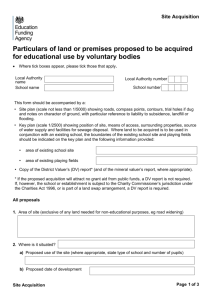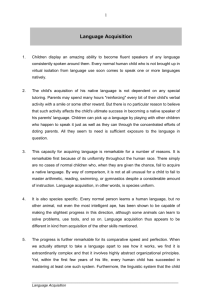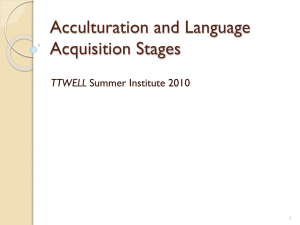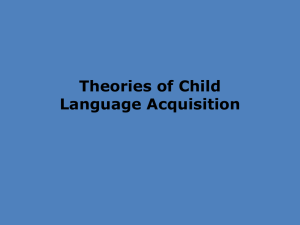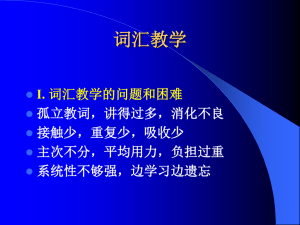Republic of Latvia Cabinet Regulation No. 68 Adopted 19 February
advertisement
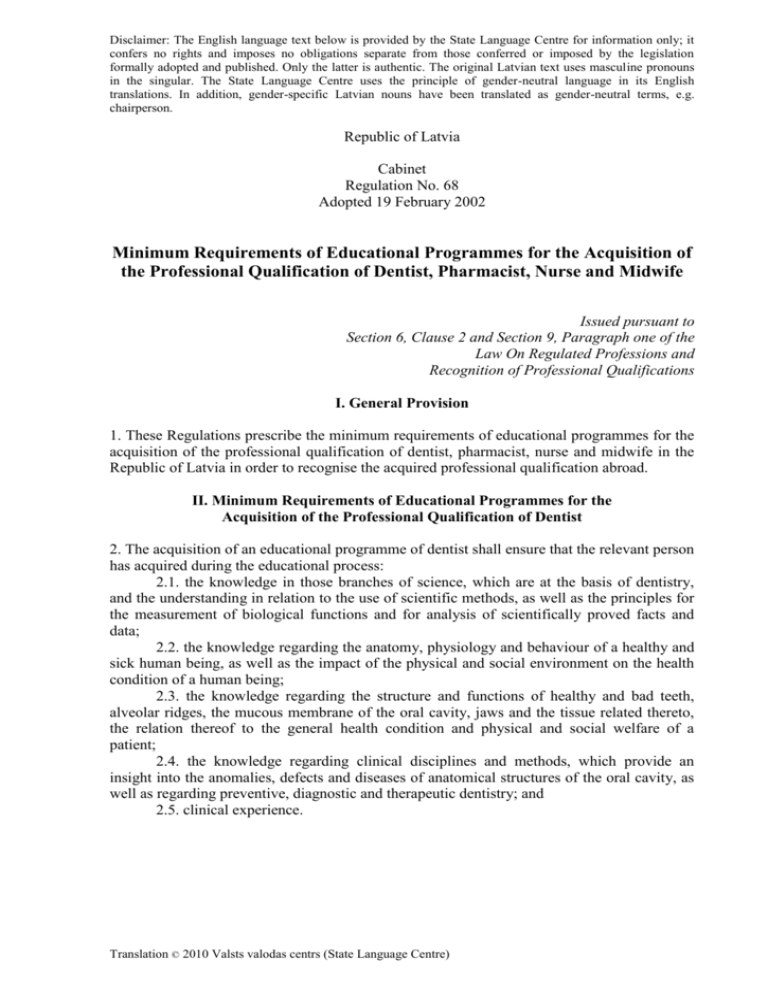
Disclaimer: The English language text below is provided by the State Language Centre for information only; it confers no rights and imposes no obligations separate from those conferred or imposed by the legislation formally adopted and published. Only the latter is authentic. The original Latvian text uses masculine pronouns in the singular. The State Language Centre uses the principle of gender-neutral language in its English translations. In addition, gender-specific Latvian nouns have been translated as gender-neutral terms, e.g. chairperson. Republic of Latvia Cabinet Regulation No. 68 Adopted 19 February 2002 Minimum Requirements of Educational Programmes for the Acquisition of the Professional Qualification of Dentist, Pharmacist, Nurse and Midwife Issued pursuant to Section 6, Clause 2 and Section 9, Paragraph one of the Law On Regulated Professions and Recognition of Professional Qualifications I. General Provision 1. These Regulations prescribe the minimum requirements of educational programmes for the acquisition of the professional qualification of dentist, pharmacist, nurse and midwife in the Republic of Latvia in order to recognise the acquired professional qualification abroad. II. Minimum Requirements of Educational Programmes for the Acquisition of the Professional Qualification of Dentist 2. The acquisition of an educational programme of dentist shall ensure that the relevant person has acquired during the educational process: 2.1. the knowledge in those branches of science, which are at the basis of dentistry, and the understanding in relation to the use of scientific methods, as well as the principles for the measurement of biological functions and for analysis of scientifically proved facts and data; 2.2. the knowledge regarding the anatomy, physiology and behaviour of a healthy and sick human being, as well as the impact of the physical and social environment on the health condition of a human being; 2.3. the knowledge regarding the structure and functions of healthy and bad teeth, alveolar ridges, the mucous membrane of the oral cavity, jaws and the tissue related thereto, the relation thereof to the general health condition and physical and social welfare of a patient; 2.4. the knowledge regarding clinical disciplines and methods, which provide an insight into the anomalies, defects and diseases of anatomical structures of the oral cavity, as well as regarding preventive, diagnostic and therapeutic dentistry; and 2.5. clinical experience. Translation © 2010 Valsts valodas centrs (State Language Centre) 3. The minimum of study subjects (courses) shall be specified in the study programme for the acquisition of a dentist’s diploma. Individual study subjects (courses) may be acquired within the framework of other study subjects (courses) or by combining them with other study subjects (courses). The minimum number of study subjects (courses) to be acquired shall be as follows: 3.1. general study subjects: 3.1.1. chemistry; 3.1.2. physics; 3.1.3. biology; 3.2. medical and biological, pre-clinical and clinical study subjects: 3.2.1. anatomy; 3.2.2. embryology; 3.2.3. histology and cytology; 3.2.4. physiology; 3.2.5. biochemistry; 3.2.6. general and special pathological anatomy; 3.2.7. general and special pathological physiology; 3.2.8. pharmacology; 3.2.9. microbiology; 3.2.10. hygiene; 3.2.11. preventive medicine and epidemiology; 3.2.12. radiology; 3.2.13. physiotherapy; 3.2.14. surgery; 3.2.15. internal diseases and paediatrics; 3.2.16. otorhinolaryngology; 3.2.17. dermato-venereology; 3.2.18. general psychology, psychopathology and neurology; 3.2.19. anaesthetics and reanimation; 3.3. study subjects of dentistry: 3.3.1. prosthodontics; 3.3.2. dental materials and devices; 3.3.3. conservative dentistry; 3.3.4. preventive dentistry; 3.3.5. anaesthetics in dentistry; 3.3.6. oral, maxillo-facial surgery; 3.3.7. special pathology; 3.3.8. child dentistry; 3.3.9. periodontology; 3.3.10. orthodontics; 3.3.11. dental radiology; 3.3.12. dental occlusions and jaw functions; 3.3.13. organisation of health care and regulatory enactments in health care; 3.3.14. professional ethics; 3.3.15. social aspects of dentistry; and 3.3.16. clinical training. Translation © 2010 Valsts valodas centrs (State Language Centre) 2 4. The minimum duration of a residency educational programme after the acquisition of a fulltime educational programme for dentists so that a person might apply for the receipt of permission for independent activities involving dentistry according to his of her competence shall be as follows: 4.1. in oral, maxillo-facial surgery – five years; 4.2. in paradontology – three years; 4.3. in child dentistry – three years; 4.4. in orthodontics – three years; 4.5. in dental prosthetics – three years; 4.6. in endodontics – three years; and 4.7. in dental care – two years. III. Minimum Requirements of Educational Programmes for the Acquisition of the Professional Qualification of Pharmacist 5. The acquisition of a pharmacist’s educational programme shall ensure that during the educational process the relevant person has acquired theoretical and practical knowledge in the following areas: 5.1. medicinal products and substances, which are used in the manufacturing of medicinal products; 5.2. pharmaceutical technology and physical, chemical, biological and microbiological control of medicinal products; 5.3. effects of medicinal products and metabolism, effects of toxic substances, use of medicinal products; 5.4. evaluation of scientific data in the field of the use of pharmaceutical preparations; and 5.5. regulatory enactments regulating the field of pharmacy. 6. The minimum number of study subjects (courses) shall be specified in the study programme for the acquisition of a pharmacist’s diploma. Individual study subjects (courses) may be acquired within the framework of other study subjects (courses) or by combining them with other study subjects (courses). The minimum number of study subjects (courses) to be acquired shall be as follows: 6.1. plant and animal biology; 6.2. physics; 6.3. general and inorganic chemistry; 6.4. organic chemistry; 6.5. analytical chemistry; 6.6. pharmaceutical chemistry, also analysis of pharmaceutical forms; 6.7. medical biochemistry; 6.8. anatomy and physiology; 6.9. Latin (also medical terminology); 6.10. microbiology; 6.11. pharmacology and pharmacotherapy; 6.12. technology of pharmaceutical forms; 6.13. toxicology; 6.14. pharmacognosy; and 6.15. regulatory enactments regulating professional activities, professional ethics. Translation © 2010 Valsts valodas centrs (State Language Centre) 3 7. Education of a pharmacist shall ensure professional knowledge and skills, which give the right to perform the following minimum of the types of professional activities of a pharmacist: 7.1. preparation of pharmaceutical forms; 7.2. preparation, standardisation and control of medicinal products; 7.3. testing of medicinal products in special laboratories; 7.4. preparation, testing, storage and distribution of medicinal products in general-type and closed-type pharmacies, drug wholesalers and drug manufacturing undertakings; and 7.5. informative and advisory activities in the field of pharmacy. IV. Minimum Requirements of Educational Programmes for the Acquisition of the Professional Qualification of Nurse 8. The acquisition of a nurse’s educational programme shall ensure that during the educational process the relevant person has acquired: 8.1. the knowledge in the branches of science, which are at the basis of general care for patients, and the understanding regarding the anatomy, physiology and behaviour of a healthy and sick human being, as well as the impact of the physical and social environment on the health condition of a human being; 8.2. the knowledge of the essence and ethics of the profession of nurse, as well as regarding the general principles of health care and care for patients; 8.3. clinical experience in the nursing profession; 8.4. the knowledge and skills in educating patients and their family members in health care issues; and 8.5. the knowledge and skills in practical education of medical practitioners and work experience involving persons employed in the health care system. 9. Theoretical education of nurses shall be part of the educational process, during which educatees acquire knowledge, understanding and professional skills, which are necessary for the planning, provision and evaluation of general care for patients. It shall be implemented in medical vocational education institutions. 10. Clinical training of nurses shall be part of the educational process, in which educatees on the basis of the acquired knowledge and skills acquire the planning, provision and evaluation of general care for patients in direct contact with a sick or healthy individual (public). Educatees shall acquire the skill to work in a health care team and to manage it, organising general care for patients (also educating an individual and the public in health issues). 11. The minimum number of study subjects (courses) shall be specified in the study programme for the acquisition of a nurse’s diploma. Individual study subjects (courses) may be acquired within the framework of other study subjects (courses) or by combining them with other study subjects (courses). The minimum number of study subjects (courses) to be acquired shall be as follows: 11.1. theoretical and practical knowledge in the nurse training: 11.1.1. essence and ethics of the nursing profession; 11.1.2. general principles of health care and care of patients; 11.1.3. care of patients in the following fields of nurse training: 11.1.3.1. general and special medical treatment; 11.1.3.2. general and special medical surgery; 11.1.3.3. child care and paediatrics; 11.1.3.4. obstetrics; 11.1.3.5. mental health and psychiatry; Translation © 2010 Valsts valodas centrs (State Language Centre) 4 11.1.3.6. geriatrics and care of the elderly; 11.2. theoretical and practical knowledge in the basic fields of medicine: 11.2.1. anatomy and physiology; 11.2.2. pathology; 11.2.3. bacteriology, virology and parasitology; 11.2.4. biophysics, biochemistry and radiology; 11.2.5. dietetics; 11.2.6. hygiene: 11.2.6.1. preventive medicine; 11.2.6.2. health education; 11.2.7. pharmacology; 11.3. theoretical and practical knowledge in social sciences: 11.3.1. sociology; 11.3.2. psychology; 11.3.3. principles of management; 11.3.4. pedagogy; 11.3.5. regulatory enactments regulating professional activities; 11.3.6. legal aspects of care of patients; 11.4. clinical training in the following occupational nursing fields: 11.4.1. general and special medical treatment; 11.4.2. general and special medical surgery; 11.4.3. child care and paediatrics; 11.4.4. obstetrics; 11.4.5. mental health and psychiatry; 11.4.6. geriatrics and care of the elderly; 11.4.7. care of patients at home. 12. The educational programmes for nurses at institutions of higher education, which allow the acquisition of the fifth level professional qualification, shall include the acquisition of the knowledge and skills specified in Paragraph 8 of these Regulations, as well as the acquisition of clinical training in the occupational fields referred to in Sub-paragraph 11.4 of these Regulations. V. Minimum Requirements of Educational Programmes for the Acquisition of the Professional Qualification of Midwife 13. The acquisition of an educational programme of midwife shall ensure that the relevant person has acquired during the educational process: 13.1. knowledge in the branches of science, which are at the basis of occupational activities of a midwife, particularly in obstetrics and gynaecology; 13.2. knowledge regarding professional ethics and regulatory enactments regulating and professional activities; 13.3. knowledge regarding the biological functions, anatomy and physiology of a woman and a newborn infant, as well as the impact of the physical and social environment on the health condition of a human being; 13.4. clinical training in the profession of a midwife; 13.5. knowledge and skills in educating patients and their family members in health care issues; and 13.6. knowledge and skills in the practical education of medical practitioners and work experience involving persons employed in the health care system. Translation © 2010 Valsts valodas centrs (State Language Centre) 5 14. The minimum number of study subjects (courses) shall be specified in the study programme for the acquisition of a midwife’s diploma. Individual study subjects (courses) may be acquired within the framework of other study subjects (courses) or by combining them with other study subjects (courses). The educational programme for midwives, in which persons with secondary education are accepted, shall have the following minimum number of study subjects (courses): 14.1. theoretical general subjects: 14.1.1. anatomy and physiology; 14.1.2. basics of pathology; 14.1.3. basics of bacteriology, virology and parasitology; 14.1.4. basics of biophysics, biochemistry and radiology; 14.1.5. paediatrics, neonatology; 14.1.6. hygiene, preventive medicine, health education, early diagnosis of diseases; 14.1.7. dietetics, diet of a woman and child; 14.1.8. basics of sociology and social medicine; 14.1.9. basics of pharmacology; 14.1.10. psychology; 14.1.11. basics of pedagogy; 14.1.12. organisation of health care and regulatory enactments in health care; 14.1.13. professional ethics; 14.1.14. sexual education and family planning; 14.1.15. protection of the rights of the mother and the child; 14.2. theoretical general subjects: 14.2.1. embryology; 14.2.2. pregnancy, birth and the postnatal period; 14.2.3. gynaecological and labour pathology; 14.2.4. preparation for the birth of a child and parental functions (also psychological aspects); 14.2.5. preparation of parents for the birth of and care for a child (also psychological preparation); 14.2.6. the use of medical devices and equipment necessary in the work of a midwife; 14.2.7. analgesia, anaesthesia and reanimation; 14.2.8. physiology and pathology of a newborn infant; 14.2.9. care for and observation of a newborn infant; 14.3. clinical training: 14.3.1. consultation of pregnant women, which includes at least 100 prenatal examinations; 14.3.2. observation and care of at least 40 pregnant women during the prenatal period; 14.3.3. attendance of at least 40 births. If it is not possible to ensure this amount, it may be reduced to 30 births, providing that educatees will assist in 20 more births; 14.3.4. assisting in births with pathological position of the foetus. If it is not possible, the skills shall be acquired in simulated situations; 14.3.5. performance of episiotomy and application of surgical sutures; 14.3.6. observation of and care of 40 patients with risk factors (pregnant women, women giving birth and women in the postnatal period); 14.3.7. examination of at least 100 women in the postnatal period and postnatal examination of healthy newborn infants; Translation © 2010 Valsts valodas centrs (State Language Centre) 6 14.3.8. observation of and care for women in the postnatal period and newborn infants, including prematurely born infants, infants born postterm, newborn infants with small birth weight and sick newborn infants; and 14.3.9. care of women, which have gynaecological and pregnancy pathologies. 15. If the acquisition of an educational programme for a midwife is commenced after the acquisition of the educational programme for a nurse referred to in these Regulations, it shall include the knowledge, skills, clinical training and study subjects (courses) specified in Paragraphs 13 and 14 of these Regulations, which do not form part of equivalent study subjects (courses) in the educational programme for a nurse. VI. Closing Provision 16. These Regulations shall come into force on 1 August 2002. Prime Minister A. Bērziņš Acting for the Minister for Education and Science, Minister for Justice I. Labucka Translation © 2010 Valsts valodas centrs (State Language Centre) 7
